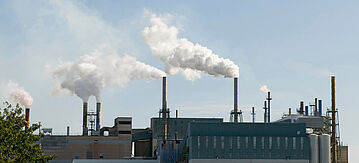The support for a swift and ambitious reform of the European emissions trading scheme is constantly growing. Ministers from 14 EU member states agreed to jointly call for the EU to introduce an ambitious market stability reserve.
Federal Environment Minister Barbara Hendricks commented: "Fixing the emissions trading scheme is urgently necessary. We are delighted that so many member states share this view. I expect that the Commission, member states and the parliament will act swiftly and do everything to get emissions trading back on track, because a functioning emissions trading scheme is the most effective instrument for climate action in Europe."
In their declaration, the ministers emphasised the urgency of swiftly reforming emissions trading at EU level. The most important element of this reform is the introduction of a market stability reserve (MSR) which would help to reduce excess allowances on the market. A clear majority of the group is in favour of an early launch of the MSR in 2017 - in line with the long-held position of the German government. In this way, the currently substantial excess allowances in the emissions trading market is to be reduced by directly transferring certificates that were held back through backloading into the reserve.
In their declaration, the ministers emphasised the urgency of swiftly reforming emissions trading at EU level. The most important element of this reform is the introduction of a market stability reserve (MSR) which would help to reduce excess allowances on the market. A clear majority of the group is in favour of an early launch of the MSR in 2017 - in line with the long-held position of the German government. In this way, the currently substantial excess allowances in the emissions trading market is to be reduced by directly transferring certificates that were held back through backloading into the reserve.
The Green Growth Group also calls for the new Commission to swiftly and ambitiously implement the decision of the European Council concerning the 2030 EU climate and energy policy. The Group also urges the EU to consider increasing its greenhouse gas emissions target to least 40 percent (domestic) by 2030 in the context of an ambitious global climate agreement in Paris in 2015. International market mechanisms could also be used for this.

